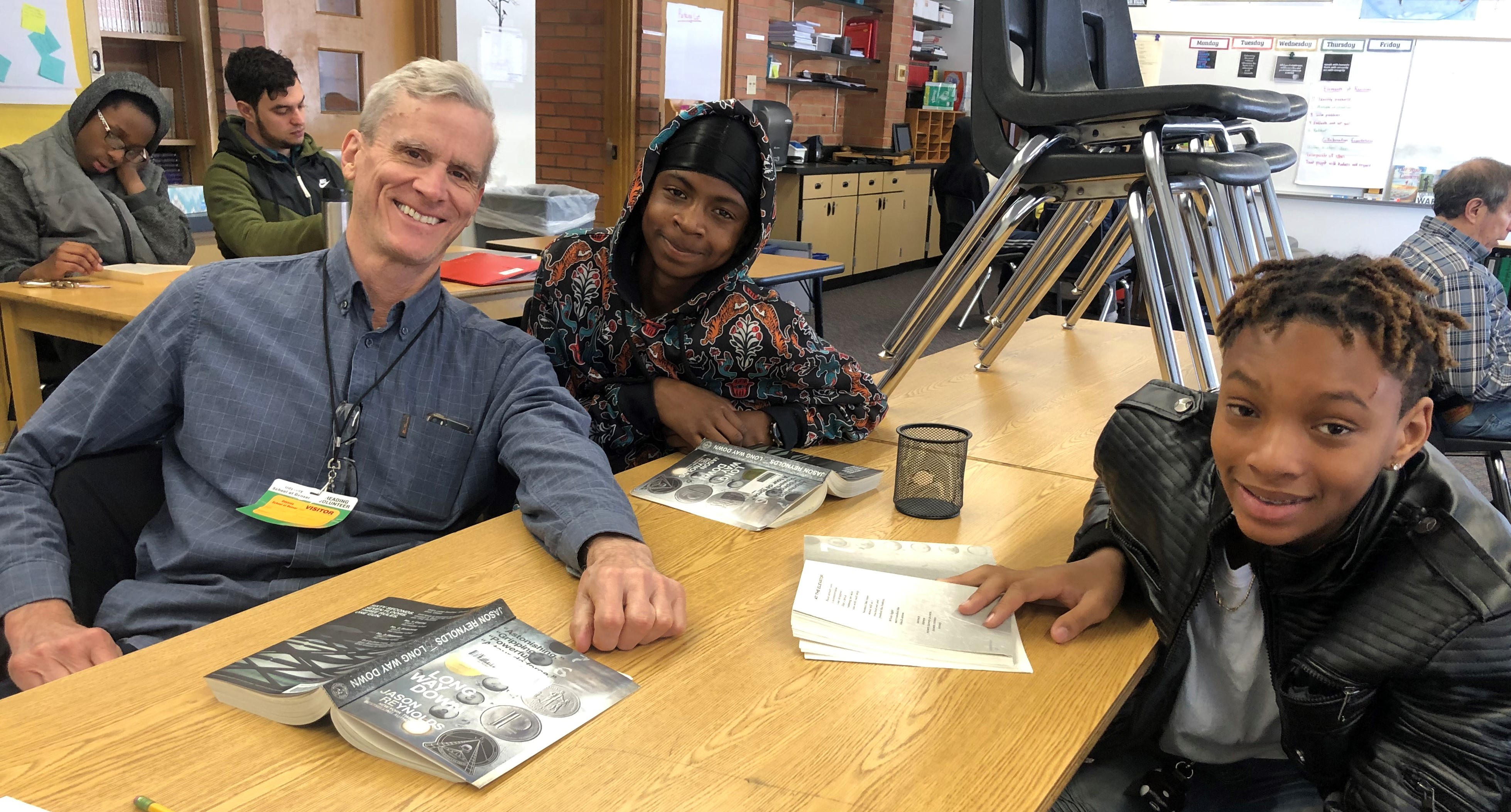Partners in Literacy’s reading volunteers share reading with students in kindergarten through 8th grade. Does it surprise you that it is the middle school groups that change the most lives? At this age, kids begin to recognize and make their own choices about their educational lives. Each group decides together on what book to read. Then they decide what pace to read the book: whether they want to read at home and discuss the book together at school or only read collectively when they are in the classroom together. There are no points or grades given for more or less work.
At the end of the year, the kids and adults have an appreciation circle. Each student writes a card to his or her volunteers to say “thanks” for a year of reading together. I have the privilege each year to read each thank you note.
One word stood out in this year’s thank you notes: “comfortable”.
The 8th grader, Mila, who wrote this note has a casual approach to school attendance. If she comes to school, she walks in late— sometimes quite late. (Other kids have told me that her parents do not really care if she comes to school or not.) Her classmates allow her to be their compassion north star. Her emotional intelligence is towering.
In writing thank you notes, a lot of middle school kids are slap-dash and write clichéd phrases like: “Thanks for taking time out of your busy day.” Or, “Thanks for helping me pronounce hard words.” Or even, “Thanks for putting up with us.”
There are two other girls in Mila’s group. Natalie is whip smart but is very vocal about her hate for reading. Kelly lost her father to cancer two years ago; her outward appearance is unassailable independence. Their reading volunteer is a soft spoken, work-from-the-home-lawyer and a mom of another 8th grader in their class. Catherine is utterly calm, a terrific listener and a great lover of books. Together, the group shared the reading of John Green’s, Paper Towns, and Jesse Andrew’s, Me, Earl and the Dying Girl. Then for the last month, they were in thralls of laughter reading the books of their “youth”: Mercy Watson, Where the Sidewalk Ends, Ivy and Bean….
In her thank you note, Mila wrote: “Thank you for reading with us. We were comfortable with you.” I was dumb struck. It was the perfect word for what I want in middle school reading groups. Isn’t middle school the time when comfort with oneself happens only for fleeting moments? Comfort with one’s friends might seem solid, but in an instant, it can blow up, never to quite be replaced.
These girls make up a solid 8th grade clique consummated in classes and hallways with whispering and giggling. Yet into that space infiltrated a mom that they knew. Her presence made an opening for reading out loud to one another possible. It turned out it was good— even “comfortable”. Reading crossed the boundary from being something that is a “have to in school” to “this is something we, our group, does. We like it.” When school behaviors cross a boundary into social behaviors, educators have done their job in making life long learners.

